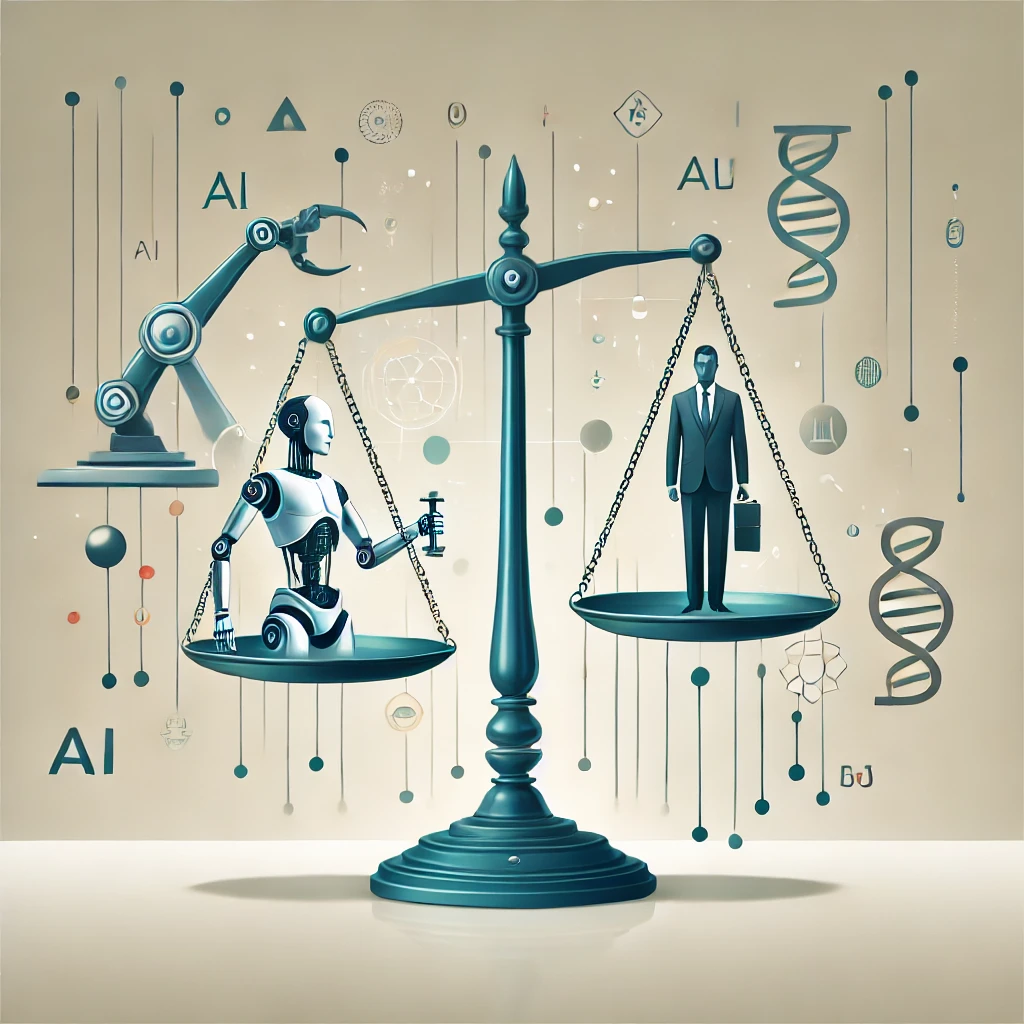With the rapid advancements in technology, particularly in Artificial Intelligence, it’s only natural to ask: could AI eventually replace lawyers and other legal professionals? The answer is complex and layered, and to fully understand the potential impact, it’s essential to weigh both the advantages and the limitations of AI in the legal sector.
Arguments in Favor of AI in Law
1. Speed of Processing
AI systems can process and analyze large volumes of data at incredible speeds, far faster than any human. This allows for quicker turnaround times on tasks such as document review and legal research.
2. Real-time Adaptability
AI tools are able to adapt to and incorporate updates, such as changes in case law or new legislation, in real-time. This constant adaptability helps legal professionals stay updated without extensive manual research.
3. Cost Efficiency
For routine tasks, AI can reduce the reliance on extensive human labor, translating to cost savings for both law firms and their clients. Automation can make legal services more accessible by reducing billable hours for time-consuming, repetitive tasks.
Arguments in Favor of Human Expertise in Law
1. Nuance and Human Rigor
Legal work often requires nuanced interpretation, discernment, and a deep understanding of complex human contexts. This is something AI, for all its processing power, cannot replicate to the level of an experienced attorney.
2. Rhetoric and Relationship Building
Establishing trust and rapport with clients is central to legal practice. AI lacks the personal touch and the empathy that are key to building these client relationships.
3. Understanding Client Needs and Goals
A skilled attorney can grasp the underlying, sometimes unspoken goals of a client. This holistic understanding enables lawyers to craft creative, client-centered legal strategies that AI cannot generate on its own.
4. Innovation and Creativity
Legal practice is as much about creative problem-solving as it is about applying established rules. While AI can assist with research and analysis, it lacks the ability to devise novel legal arguments or strategies that can make or break a case.
A Balanced Perspective
A study by Goldman Sachs in 2023 predicts that two-thirds of current jobs in Europe could be threatened by AI. However, this outlook may not be as dire as it sounds. Christophe Roquilly, director of the EDHEC Augmented Law Institute, offers a reassuring perspective: « AI won’t replace legal professions; rather, legal professionals who integrate AI solutions will outperform their peers. » As Roquilly notes, AI is steering the legal field toward specialized solutions in areas such as social law, tax law, and litigation. He also predicts that data specialists will become integral to legal teams, reflecting the shift toward technology-augmented legal services.
How Can Legal Professionals Adapt?
To remain competitive in this rapidly evolving landscape, legal professionals must commit to ongoing training in both legal and technical advancements. Staying informed on these developments is crucial for maintaining a competitive edge.
AI as an Opportunity
AI should be viewed as a tool to increase optimization, efficiency, and competitiveness within the legal field. Far from replacing lawyers, AI offers a way to enhance their capabilities, making them faster and better-equipped to meet client needs.
Legibus: Bridging Technology and Human Expertise in Law
As AI reshapes the legal industry, Legibus is at the forefront of this transformation. Legibus’s intelligent assistant, LEGIT, combines advanced AI technology with a deep understanding of legal practice to support lawyers, not replace them. By automating time-consuming tasks like legal research and document review, Legibus frees up professionals to focus on strategy, client relationships, and high-value casework.
Legibus empowers lawyers to operate more efficiently while preserving the crucial elements of human insight and creativity. Built specifically for the legal field, Legibus goes beyond generic AI tools by providing tailored solutions that are both secure and compliant, hosted on French servers to ensure GDPR compliance and data sovereignty.
If you’re interested in learning how Legibus can help legal professionals enhance their practice and adapt to the future, visit legibus.ai to explore our innovative approach to AI-driven legal support.
Together, let’s pave the way for a more efficient and accessible legal system, where technology and expertise work hand in hand.

Will the Future of Legal Professions Be Shaped by AI? - LegalTechTalk
25 octobre 2024 at 17h23[…] Source: Legibus […]